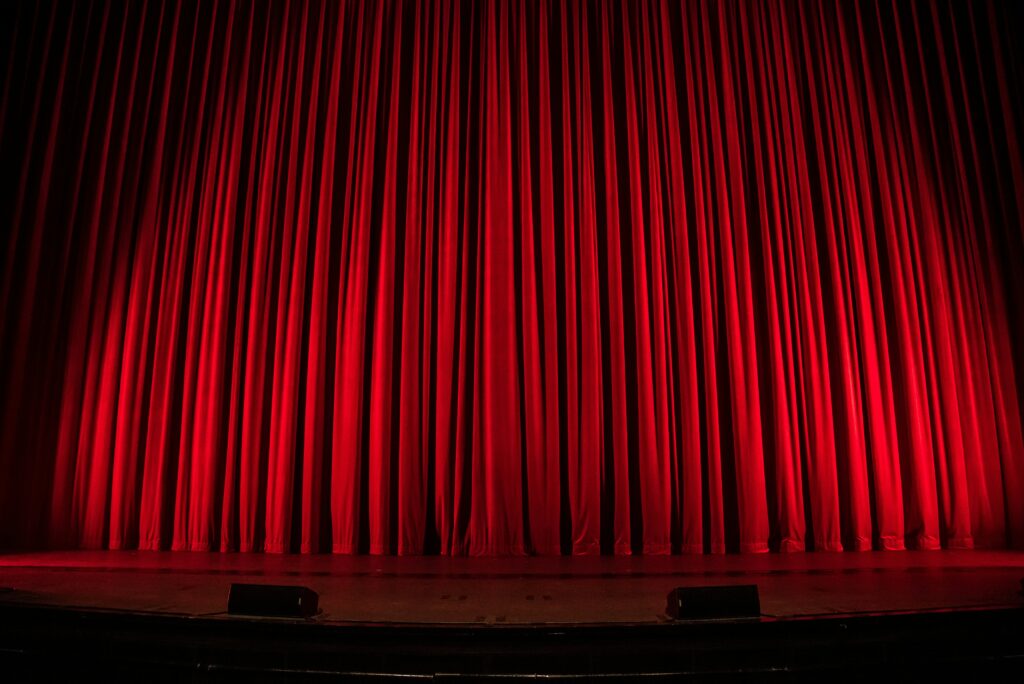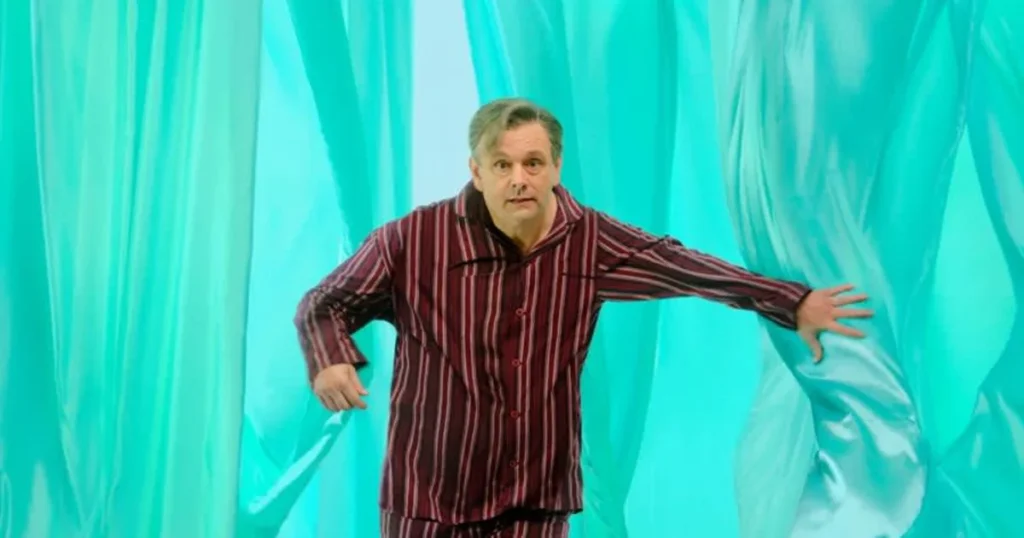Derek Jones reports on a drama that is stirring up a debate in Denbigh, the 19th Century explorer’s home town
In 1985, as Editor of Programme Support at Channel 4, I played a bit part in the great project to make sure that Colin Thomas’ epic 13-part history of Wales, The Dragon has Two Tongues, was followed up in classes, discussion groups, and private study all over the UK. The bulk of the discussion took place in Wales, and was coordinated by Bethan Eames, then community education officer at HTV. However, parallel explorations in England, Scotland and Northern Ireland undertaken by other ITV educationalists with my encouragement, helped to make sure that justice was done to a history series which has, in my opinion, never been surpassed – Simon Schama, David Starkey et al notwithstanding.
The Dragon’s durability is owed in large part to its vivid demonstration that ‘truth’ in history depends very much on who is doing the telling. Gwyn Alf Williams, committed Marxist, and Wynford Vaughan Thomas, traditionalist and romantic, often had diametrically opposed interpretations of the same episode in Welsh history. No conclusions were propounded. Viewers were left to make their own judgements. It is fascinating and heartening that in his latest work, Mr Stanley’s Magic Lantern and the Heart of Darkness, a play recently performed in Denbigh, Colin Thomas is still in the business of showing that the truth is rarely clear cut. What’s more, he clearly still believes that his creative work is not complete until it has been publicly discussed.
Mr Stanley’s Magic Lantern marks several departures, however, from his previous work. It is, in the first place, emphatically not for television. Created for a live audience, it is a multi-media production employing theatre, video and music to present the life of Henry Morton Stanley (1841-1904) in a new and critical light. It is a three parter, featuring Stanley himself (played by Gwyn Vaughan Jones); Edmund Morel, French-born but eventually making his home in Hawarden, less than 30 miles from Denbigh (played by Robert Gwyn Davin), who campaigned against the imperialist exploitation of the Congo; and the Revd George Washington Williams (played by Sule Rimi), an American journalist who reported on shocking local conditions in the ‘heart of darkness’.
Far from being intended for a mass audience, the production is specifically directed towards the people of Denbigh, where Stanley was born, and where there are currently moves to erect a statue in his honour. It was first presented at Theatr Twm o’r Nant in early May. Last Saturday the cast returned to present extracts from the production, and to provoke a debate. It could not fail to assist further local discussion and decision-making on whether Stanley was, or was not, a person of whom the town should be proud.
For many, of course, Stanley was simply the explorer sent by the New York Herald in 1869 to find the Scottish missionary David Livingstone, who was apparently lost in central Africa. “Dr Livingstone, I presume” is part of the folklore of exploration and Christian missionary endeavour – though, as Tim Jeal has shown in his Stanley: The Impossible Life of Africa’s Greatest Explorer (Faber, 2007), Stanley never uttered these words at the time. He made them up later for dramatic effect. In any case the search for Livingstone is not a major theme of Mr Stanley’s Magic Lantern; Rather, the work is a search for Stanley – what sort of a man was he and how are we to judge him morally?
The production dramatises his unhappy childhood. Born a bastard (the word was used to describe ‘illegitimate’ children until relatively recent times) named John Rowlands, he was taken at a very early age to St Asaph Workhouse, where, like so many other children, he was starved of affection. His mother, who was also there, is seen to observe him without recognition. And when, later, he returns to Denbigh to visit her, there is a continuing silence between them. She tells him not to return until he was “in far better circumstances” than he appeared to be.
Later still, he returns again. By now he has served in the Confederate army and in the Union Army during the American Civil War. He is in uniform and hopes to impress her; but this time, she does not even allow him across the threshold. Meanwhile, he has adopted the name of Henry Morton Stanley and the identity of a wealthy New Orleans trader, in order to make for himself some rudimentary sense of family. How much of the later Stanley – lonely explorer, flogger of those who deserted from his expeditions, agent of one of the most greedy and unscrupulous of imperialists (Leopold II) – can be explained by reference to his early years?
There would have been many in Denbigh last Saturday who, like me, grew up believing uncritically in Stanley as the great and lonely explorer, who walked and rode 7,000 miles across Africa from the Atlantic to the Indian Ocean, and who traced the course of the River Congo from its source to the sea. Attitudes to imperialism have changed radically since then. However, during the early 1950s, when I was at school, the map was still coloured red and our teachers did not raise questions with us about the morality of the Empire. Nor, obviously enough, did Stanley.
The production featured him giving his own accounts of the expeditions, liberally scattered with references to savages, their backwardness, and their need of the benefits of European civilisation. Characteristically, Colin Thomas also introduced a heckler into the proceedings (Edmund Morel, it was suggested by a member of the cast, giving voice to Colin’s own sentiments. On the other hand, I thought immediately of the rather more good natured banter between Gwyn Alf and Wynford in The Dragon has Two Tongues). The heckler accused Stanley, among other things, of being complicit in murder – the murder of individual Congolese and of the civilisation of central Africa in the name of European greed. Stanley continued with his account, as impassive as his mother. How far can Stanley be blamed, the question was implicitly raised, for attitudes which were commonplace at the time?
But there is more on the charge sheet against Stanley than his attitudes and opinions. He has also been accused of being directly involved, to quote Joseph Conrad:
“…in the vilest scramble for loot that ever disfigured the history of human conscience’, that is in aiding and abetting the Belgian king, Leopold II, in the theft of land, devising bogus legal documents whereby local chiefs surrendered all ‘sovereign and governing rights’ to a foreign power”.
Was Stanley wilfully dishonest, or was he duped by Leopold? Historians have disagreed. Tim Jeal entirely exonerates Stanley. The heckler on Saturday night made sure that at least we did not immediately come down on one side or the other.
The citizens of Denbigh had heard directly from Tim Jeal when he visited the town to lecture on Stanley soon after the publication his book. That perhaps was the origin of the proposal for a statue. There clearly remains a head of steam for the idea despite the questions raised by Mr Stanley’s Magic Lantern. In the panel discussion, local historian Bobby Owen, sweeping aside what Stanley had said about not caring whether he returned to Denbigh or not after his encounters with his mother, suggested that the explorer had remained true to his roots, and that was a good enough reason for him to be commemorated.
Selwyn Williams, a Bangor University historian took the opposite view: “as a loyal son of Denbighshire, I very much hope that a statue will not be erected.” He quoted profusely from accounts of Stanley’s alleged cruelties. What of the actors? Gwyn Vaughan Jones (Stanley) was clear. Like other European nations, the Welsh had taken a prominent part in the exploitation of other peoples. Welsh sea captains, for instance, had transported slaves to the Americas. Stanley could not be exonerated for his part in colonial exploitation. Robert Gwyn Davin (Morel) agreed. Sule Rimi (Williams) was readier than his two colleagues to allow that Stanley was a product of his times.
There were just five contributions from the audience and I had hoped for rather more. On the other hand, these were interesting and thoughtful comments, two of them concerned to argue that Stanley was neither wholly good nor wholly bad. Certainly, he was not a saint, argued one contributor, but then, neither was Lloyd George, and nobody suggests that there should not be statues of him in Wales!
A parent who supported the idea of a Stanley statue in Denbigh believed that it would have strong educational value, for history teaching, not least, including the history of colonialism, and for geography. By now another participant was completely confused about the case for and against colonialism. He had noticed that people were beginning to suggest once more that some imperial representatives did good things.
Much the most penetrating suggestion came from a local person who would not have been happy with a statue of the adult Stanley for the reasons discussed in the production. Instead, he suggested instead two statues, one to commemorate Stanley’s childhood sufferings, and a second of a Congolese child, which would represent the sufferings of his or her peoples under colonialism.
A vote was taken. Twenty-seven people wished it to be known that they were proud of Stanley’s connection with the town. Fifteen were not, and seventeen were yet to be convinced either way. Ironically enough, there is currently a parallel debate in Kinshasa (formerly Stanleyville), where Stanley’s statue was torn down as colonial rule in the Congo came to an end nearly 50 years ago. Museum curators are questioning whether or not it should now be restored and re-erected on the grounds that, for all his faults, he is part of Congolese history.
What an interesting evening might result in Kinshasa if Mr Stanley’s Magic Lantern and the Heart of Darkness was shown there! Meanwhile, the issues raised by it not only concern Denbigh. I wonder if the results of the vote would have been different if this excellent production had been presented elsewhere in Wales.
Mr Stanley’s Magic Lantern and the Heart of Darkness was directed by Colin Thomas and produced by Medwen Roberts. The musical director was Leah Owen, and the drummer Felix Ngindu.








Comments are closed.